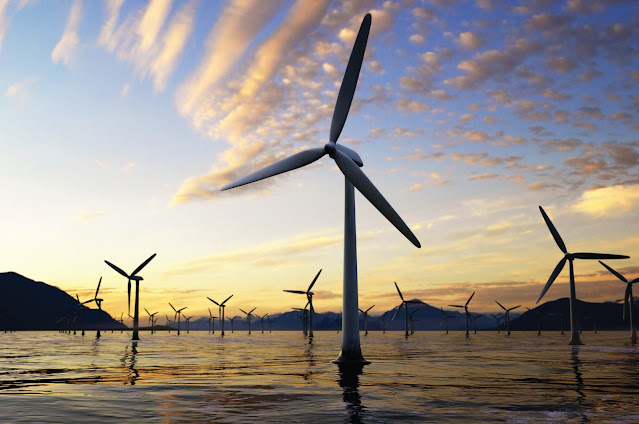Navigating the Offshore Wind Market: Opportunities and Challenges for Investors
 |
| Offshore Wind Market |
The offshore wind market presents a promising investment
landscape as the world strives to transition to renewable energy sources. With
its potential for significant energy generation and environmental benefits,
offshore wind farms have captured the attention of investors. However,
navigating this market requires a thorough understanding of both the
opportunities and challenges involved.
Opportunities:
- Growing
Global Market: The market is expanding rapidly across the globe, offering
vast opportunities for investors. Countries like the United Kingdom,
Germany, China, and the United States are heavily investing in offshore
wind projects, creating a robust market for offshore wind development.
- Long-Term
Revenue Streams: Offshore wind projects typically involve long-term power
purchase agreements (PPAs) or government subsidies, providing stable and
predictable revenue streams for investors. These agreements often span
over several decades, offering attractive returns on investment.
- Technological
Advancements: Continuous advancements in offshore wind turbine technology
and installation techniques have improved efficiency, resulting in higher
energy production and lower costs. These technological innovations
contribute to the economic viability of offshore wind projects, making
them more attractive to investors.
According to Coherent Market Insights, Global
Offshore Wind Market was valued at US$ 41.8 billion in 2022. The
industry is projected to grow from US$ 47.4 billion in 2023 to US$ 131.4
billion by 2030, exhibiting a compound annual growth rate (CAGR) of 15.68%
during the forecast period (2023 - 2030).
Challenges:
- High
Initial Capital Costs: Offshore wind projects require significant upfront
capital investment due to the costs associated with turbine procurement,
installation, and infrastructure development. This capital-intensive
nature poses a challenge for investors seeking entry into the market.
- Project
Complexity and Risks: Developing offshore wind farms involves dealing with
complex engineering, logistical, and environmental challenges. Factors
such as harsh weather conditions, marine logistics, and grid connection
pose risks that need to be carefully managed. Investors must assess and
mitigate these risks to ensure project success.
- Regulatory
and Policy Uncertainty: The offshore
wind market is subject to evolving regulatory frameworks and
government policies. Changes in subsidy programs, permitting processes,
and grid connection policies can impact project economics and investor
returns. Staying informed about the regulatory environment is crucial for
successful investment in this sector.
- Competition
and Market Consolidation: As the offshore wind market expands, competition
among developers and investors intensifies. The presence of established
players and market consolidation can make it challenging for new entrants
to secure suitable project opportunities.



Comments
Post a Comment